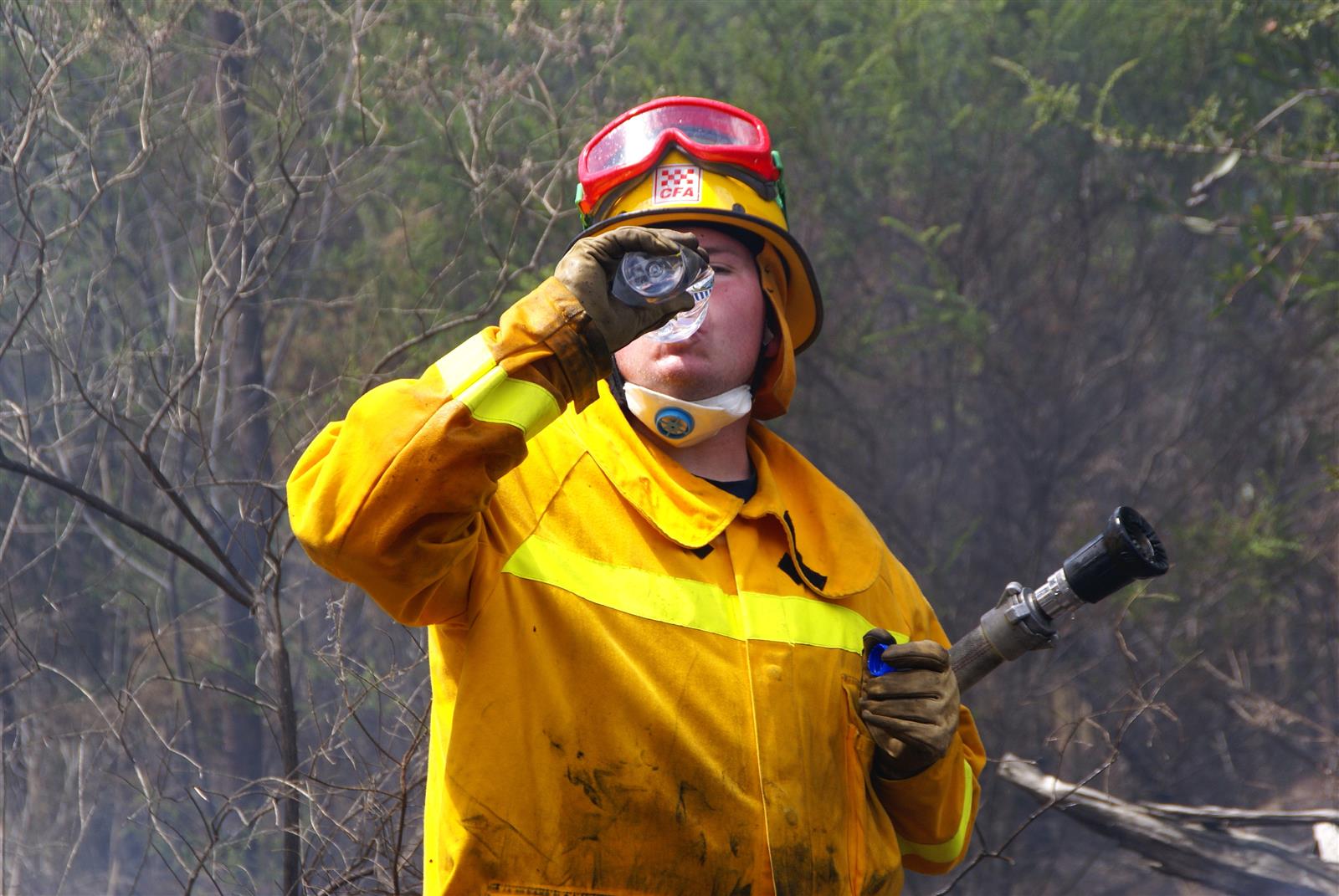Getting through summer safely

Summer is upon us and most of us will be spending more time outdoors. CFA can help keep you safe over the summer season and help you to look after your health now and in the future.
In summer CFA members are likely to be exposed to increased sun exposure, hot weather and extreme weather events when preparing for events, participating in community activities and responding to emergencies.
To help protect our CFA community, we encourage you to follow sun safety recommendations to reduce your risk of sunburn and heatstroke, and reduce your risk of long-term sun damage and skin cancer.
Sun safety
Australia has one of the highest rates of skin cancer globally, and more than two in three Aussies will be diagnosed with skin cancer at some point in their lives because of sun damage from constant sun exposure, sun burn and lack of sun protection. Skin cancer is the most common cancer diagnosed in Australia and can be prevented. Sun protection is the easiest way to prevent skin cancer.
Protect your skin from ultraviolet (UV) radiation from the sun, which is the main cause of skin cancer. Most skin cancer can be prevented by using good sun protection when the UV rating is above 3.
Read about UV radiation.
Remember the 5 'Ss' for sun protection:
Slip on clothing Clothing creates a barrier between the sun’s UV and your skin. | Slop on sunscreen Sunscreen should be considered the last line of defence. No sunscreen blocks 100% of UV radiation. | Slap on a hat A hat with a tight weave and broad brim provides good shade to your face, head, neck, and ears. | Seek shade Shade can be natural, built or portable. | Slide on sunglasses Choose a close-fitting, wrap-around style of glasses. |
Read more on the Sunsmart website.
Hot weather - staying cool and hydrated
Heatwaves and hot weather can be dangerous for anyone as it impacts your body and mental health. Older people, young children, outdoor workers and people with medical conditions are at a greater risk of the dangers of heatwaves.
CFA members can be exposed to extreme heat conditions, especially when responding to a fire emergency or are outdoors at events in extreme heat. It’s important to be familiar with heat exhaustion and heatstroke and how to manage this, and to provide assistance to someone in need.
Heat exhaustion
When the weather is extreme people are more likely to experience heat exhaustion. This happens when someone becomes dehydrated, as the body sweats more to cool itself down.
Treatment:
- Get help, lie down in a cool or shady area to monitor
- Remove excessive clothing and loosen any tight clothing
- Put hands and feet in cold water, cool by fanning and moisten the skin, if possible.
Heatstroke
Heatstroke can be life-threatening, causing someone to collapse or fall unconscious. Heatstroke is more serious as the body is no longer able to regulate its temperature by cooling the skin by sweating. The internal body temperature rises and organ damage can occur.
Treatment:
- Immediately call Tirple Zero (000) for an ambulance.
- If available, have the person take a cold shower or bath.
During a heatwave
Stay cool
- Stay indoors: keep out of the heat if you can.
- If you need to go outside, wear light clothing and a hat, put on sunscreen and take water with you.
- Do daily activities like shopping and gardening early in the day or ask someone to help you.
- Draw blinds early in the day.
- Turn your air-conditioner on before the room heats up
- Take cool showers and splash yourself several times a day with cold water, or use a damp cloth.
- Go to an air-conditioned building in your local area to cool off: a shopping mall, community centre, cinema, library or swimming pool.
Drink plenty of water
- Even when you don't feel thirsty, drink plenty of water.
- Avoid alcohol, tea, coffee and sugary or fizzy drinks. They make dehydration worse.
- Eat small meals more often, rather than large meals. And eat more cold food like salads and fruit.
Read more about heatstroke.
Further reading
https://www.redcross.org.au/emergencies/prepare/heatstroke-and-heat-exhaustion/
https://www.redcross.org.au/emergencies/prepare/heatwaves-and-hot-weather/
| Submitted by |
Madalene Cursio |